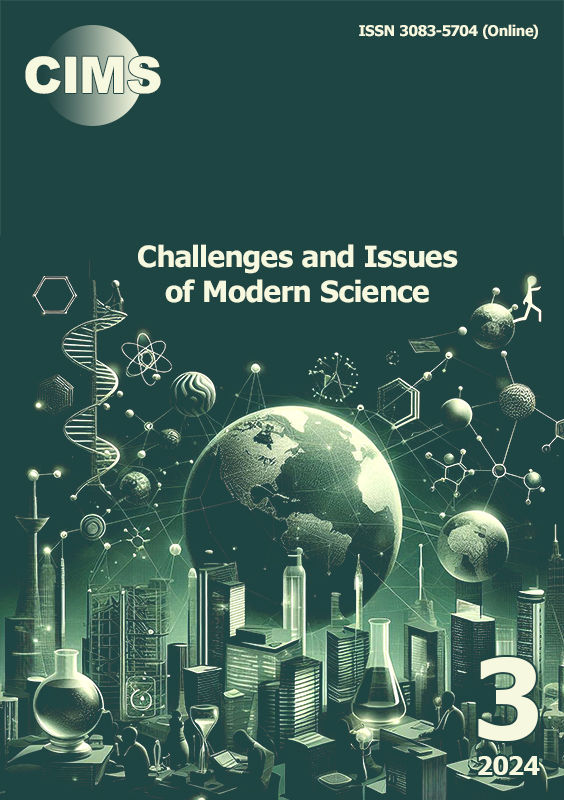Using micro:bit for building distributed sensor networks in robotic systems
Keywords:
distributed sensor network, microcontroller, robotic system, communication protocols, modular systemAbstract
Purpose. The purpose of the paper is to explore the possibilities of integrating the micro:bit microcontroller with external devices through UART, I2C, and SPI protocols to create modular and distributed sensor networks in robotic systems. The article focuses on the compatibility issues of these protocols with other devices and possible solutions. Design / Method / Approach. The paper uses an experimental approach, examining the use of standard communication protocols to connect micro:bit with external sensors and controllers, such as Raspberry Pi, to build a modular sensor network. Findings. It was found that micro:bit supports all major communication protocols, but there are compatibility issues with the radio protocol and external devices. UART, I2C, and SPI allow micro:bit to integrate with a wide range of sensors and devices, but additional configuration is needed for stable operation. Theoretical Implications. The article demonstrates that the use of standard protocols for integrating devices into robotic systems is a key aspect of creating modular sensor networks. It shows that micro:bit can be an important component to developing such systems. Practical Implications. The results can be applied in educational projects and for the creation of modular robotic systems where micro:bit acts as a manager module of different sensors. This expands the potential use of inexpensive microcontrollers in real-world scenarios. Originality / Value. The article contributes to research on integrating micro:bit into robotic systems, which is important for educational robotics, as it shows new possibilities for using microcontrollers in distributed systems. Research Limitations / Future Research. The limitation of the study is that it is based on theoretical assumptions about protocol stability when connecting multiple modules. Future research should focus on real-world testing of compatibility with other devices and optimizing wireless communication. Paper Type. This is a technical note with both experimental and theoretical elements, explor-ing the issues of integrating micro:bit into distributed systems.
Downloads
References
Ruch, A. (2022). Micro:bit; Cheap and Simple Hardware for Coding. In 3rd International STEM Education Conference Proceedings (pp. 26-37). Pusula 20 Teknoloji ve Yayıncılık A.Ş. https://www.stempd.net/wp-content/uploads/2021/01/Proceedings_3rd-International-STEM-Education-Conference.pdf
Voštinár, P., & Knežník, J. (2020). Education with BBC micro:bit. International Journal of Online and Biomedical Engineering (IJOE), 16(14), 81–94. https://doi.org/10.3991/ijoe.v16i14.17071
Ahmad, B., Ahmed, R., Masroor, S., Mahmood, B., Hasan, S. Z. U., Jamil, M., Khan, M. T., Younas, M. T., Wahab, A., Haydar, B., Subhani, M., Khan, M. A., & Tariq, S. (2023). Evaluation of Smart Greenhouse Monitoring System using Raspberry-Pi Microcontroller for the Production of Tomato Crop. Journal of Applied Research in Plant Sciences, 4(01), 452–458. https://doi.org/10.38211/joarps.2023.04.01.54
Cederqvist, A.-M. (2021). Designing and coding with BBC micro:bit to solve a real-world task – a challenging movement between contexts. Education and Information Technologies, 27(5), 5917–5951. https://doi.org/10.1007/s10639-021-10865-w
Carreira, R., Costa, N., Ramos, J., Frazão, L., & Pereira, A. (2024). A ROS2-Based Gateway for Modular Hardware Usage in Heterogeneous Environments. Sensors, 24(19), 6341. https://doi.org/10.3390/s24196341
Zhuang, C. (2024). Comparison And Selection of Commonly Used Communication Protocols in Measurement and Control Instruments. Highlights in Science, Engineering and Technology, 81, 540–546. https://doi.org/10.54097/em4syb59
Downloads
Published
Issue
Section
License
Copyright (c) 2024 Roman Duban, Yurii Yurko (Author)

This work is licensed under a Creative Commons Attribution 4.0 International License.
All articles published in the journal Challenges and Issues of Modern Science are licensed under the Creative Commons Attribution 4.0 International (CC BY) license. This means that you are free to:
- Share, copy, and redistribute the article in any medium or format
- Adapt, remix, transform, and build upon the article
as long as you provide appropriate credit to the original work, include the authors' names, article title, journal name, and indicate that the work is licensed under CC BY. Any use of the material should not imply endorsement by the authors or the journal.



















